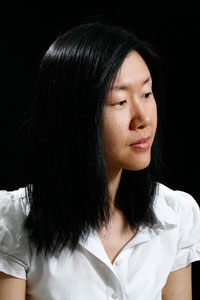Everyone has a set of personal beliefs that determine their actions. While we're supposed to respect each other's beliefs, it's hard to come to terms with the unpleasant impact caused by certain beliefs.
One such belief of people that has long worried me is the burning of joss sticks and lighting candles in worship of sacred statues at temples and shrines.
It's been widely known that the practice poses a danger to our health as the smoke from the burning contains toxins, which like traffic fumes and cigarette smoke, can cause cancer. Also, it affects the already poor air quality which has had an impact on our lives over the years.
That's why I was glad to learn from the media two weeks ago that the Phanthai Norasing shrine in Samut Sakhon has put a stop to this practice on its premises.
The shrine is one of the most famous among worshippers. It houses the statue of Phanthai Norasing, a royal steersman who lived during the Ayutthaya period around 300 years ago. He was reputed for his selfless act of honesty and integrity and became a historical figure widely worshipped by a later generation.
From now on, his worshippers are only allowed to place gold leaf on his statue while the joss sticks and candles they used to burn as offerings will be placed on trays. The reason behind the new rule is that the shrine wants to be a safe zone free from pollution.
According to the manager of Phanthai Norasing Foundation, worship is a matter of the heart and showing respect and gratitude with our heart is a good deed and enough to gratify Phanthai Norasing's spirit.
This new approach helps make worship no longer a life-threatening pursuit and I wish other temples and shrines will be inspired to follow suit.
At the same time, this story reminded me of a new measure initiated by Wat Chedi, aka Wat Ai Kai, in Nakhon Si Thammarat, to deal with the air and noise pollution caused by the excessive setting off of firecrackers that has been taking place there every day for the last few years.
According to a news report late last month, the temple has just finished a construction that is equipped with a furnace and a pollutant removal system.
It's said to be able to handle up to 5 million firecrackers each day and eliminate around 97% of the fumes from burning. But that doesn't help much with the loud noise. All of these things, however, have cost the temple a total of 7 million baht and the chamber will be ready for operation next month.
We can't deny that the faith people have in Ai Khai, or the spirit of a boy believed to be at the temple who helps worshippers with things they pray for, is very strong. His wooden statue still attracts a large number of fortune-seekers to this day.
This is probably the result of word-of-mouth success stories of some worshippers, coupled with the regular reporting in the media of his devotees winning fortunes.
It's hard to tell if their successful worship had anything to do with Ai Khai and nobody can prove the belief he likes firecrackers.
Still, an average of 1 million firecrackers are burned as offerings to him at the temple on a daily basis, unnecessarily posing a health risk to everyone as well as hurting the environment.
For many, having a special chamber for burning is a perfect solution but I can't help but wonder about other temples that also have their own version of Ai Khai statues and allow worshippers to set off firecrackers. Should they pay a lot of money to get a similar chamber too?
I think that if Wat Chedi really cares about pollution, it should have come up with a more constructive means that solves the problem at the root cause and, at the same time, benefits everyone.
It should learn from the case of Ekkapun Banluerit, an actor-turned-rescue volunteer who, two months ago, asked for the power of Thao Wessuwan, or King of Ghosts, to help him find the body of actress Tangmo Pattarathida after she fell off a speed boat.
He promised to pay for his successful worship by running around the Equestrian Statue of King Rama V a hundred times. Later, he changed his mind and chose to donate coffins to charity instead. He reasoned that the latter choice was much more beneficial to society and he believed that Thao Wessuwan would be happy about this.
It will be so much better if Wat Chedi tells devotees of Ai Khai to stop burning firecrackers and do something else. There are many choices out there -- donating money to hospitals, volunteering at shelters, helping those in need, or even joining a dhamma retreat.
These are meritorious deeds that I believe will perfectly please the spirits of all sacred statues.
Patcharawalai Sanyanusin is a writer for the Life section of the Bangkok Post.
